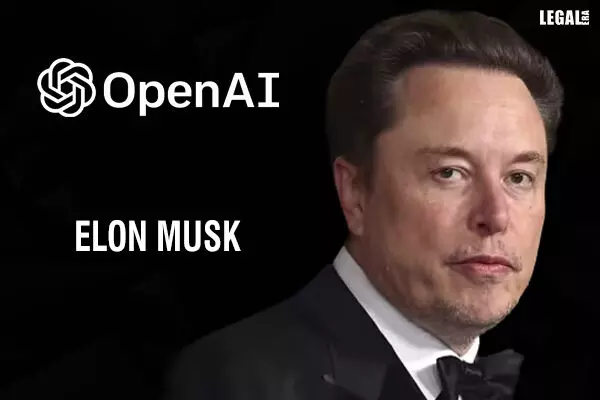- Home
- News
- Articles+
- Aerospace
- Artificial Intelligence
- Agriculture
- Alternate Dispute Resolution
- Arbitration & Mediation
- Banking and Finance
- Bankruptcy
- Book Review
- Bribery & Corruption
- Commercial Litigation
- Competition Law
- Conference Reports
- Consumer Products
- Contract
- Corporate Governance
- Corporate Law
- Covid-19
- Cryptocurrency
- Cybersecurity
- Data Protection
- Defence
- Digital Economy
- E-commerce
- Employment Law
- Energy and Natural Resources
- Entertainment and Sports Law
- Environmental Law
- Environmental, Social, and Governance
- Foreign Direct Investment
- Food and Beverage
- Gaming
- Health Care
- IBC Diaries
- In Focus
- Inclusion & Diversity
- Insurance Law
- Intellectual Property
- International Law
- IP & Tech Era
- Know the Law
- Labour Laws
- Law & Policy and Regulation
- Litigation
- Litigation Funding
- Manufacturing
- Mergers & Acquisitions
- NFTs
- Privacy
- Private Equity
- Project Finance
- Real Estate
- Risk and Compliance
- Student Corner
- Take On Board
- Tax
- Technology Media and Telecom
- Tributes
- Viewpoint
- Zoom In
- Law Firms
- In-House
- Rankings
- E-Magazine
- Legal Era TV
- Events
- Middle East
- Africa
- News
- Articles
- Aerospace
- Artificial Intelligence
- Agriculture
- Alternate Dispute Resolution
- Arbitration & Mediation
- Banking and Finance
- Bankruptcy
- Book Review
- Bribery & Corruption
- Commercial Litigation
- Competition Law
- Conference Reports
- Consumer Products
- Contract
- Corporate Governance
- Corporate Law
- Covid-19
- Cryptocurrency
- Cybersecurity
- Data Protection
- Defence
- Digital Economy
- E-commerce
- Employment Law
- Energy and Natural Resources
- Entertainment and Sports Law
- Environmental Law
- Environmental, Social, and Governance
- Foreign Direct Investment
- Food and Beverage
- Gaming
- Health Care
- IBC Diaries
- In Focus
- Inclusion & Diversity
- Insurance Law
- Intellectual Property
- International Law
- IP & Tech Era
- Know the Law
- Labour Laws
- Law & Policy and Regulation
- Litigation
- Litigation Funding
- Manufacturing
- Mergers & Acquisitions
- NFTs
- Privacy
- Private Equity
- Project Finance
- Real Estate
- Risk and Compliance
- Student Corner
- Take On Board
- Tax
- Technology Media and Telecom
- Tributes
- Viewpoint
- Zoom In
- Law Firms
- In-House
- Rankings
- E-Magazine
- Legal Era TV
- Events
- Middle East
- Africa
Elon Musk Withdraws Lawsuit Against AI Startup OpenAI

Elon Musk Withdraws Lawsuit Against AI Startup OpenAI
Elon Musk has filed a request in a California court to drop his lawsuit against OpenAI and its CEO, Sam Altman. The lawsuit had alleged that the organization had strayed from its original purpose of developing Artificial Intelligence (AI) for the benefit of humanity.
Musk's attorneys submitted the request in a California state court without providing specific grounds for the decision, as per a filing in San Francisco Superior Court. A hearing was scheduled for Wednesday to consider OpenAI's motion to dismiss the lawsuit. Both OpenAI and Musk's legal representatives did not immediately respond to requests for comment.
Musk dismissed his case without prejudice, leaving open the possibility of refiling it in the future.
The lawsuit represented the peak of Musk's ongoing disagreement with OpenAI, a startup he co-founded that has since garnered significant attention in the field of generative AI, backed by substantial funding from Microsoft.
In July of last year, Musk launched his own AI venture, xAI, which secured $6 billion in Series B funding in May, bringing its post-money valuation to $24 billion.
According to the lawsuit, Altman and OpenAI co-founder Greg Brockman initially approached Musk with the idea of creating an open-source, nonprofit organization. However, the startup, established in 2015, has since shifted its focus to profitability.
According to the lawsuit, OpenAI "ignited controversy" last year by releasing its most powerful language model, GPT-4.
In the legal action, Musk sought a court order compelling OpenAI to make its research and technology accessible to the public. Additionally, he aimed to prevent the startup from leveraging its assets, including GPT-4, for the financial gain of Microsoft and other entities.
OpenAI countered in court filings that the lawsuit presented unfounded claims, portraying it as an orchestrated effort by Musk to promote his own AI interests.
"Seeing the remarkable technological advances OpenAI has achieved, Musk now wants that success for himself," asserted OpenAI's legal representatives.
In an April filing, Musk asserted that OpenAI was attempting to present arguments rooted in contested facts that exceeded the lawsuit's intended scope.



